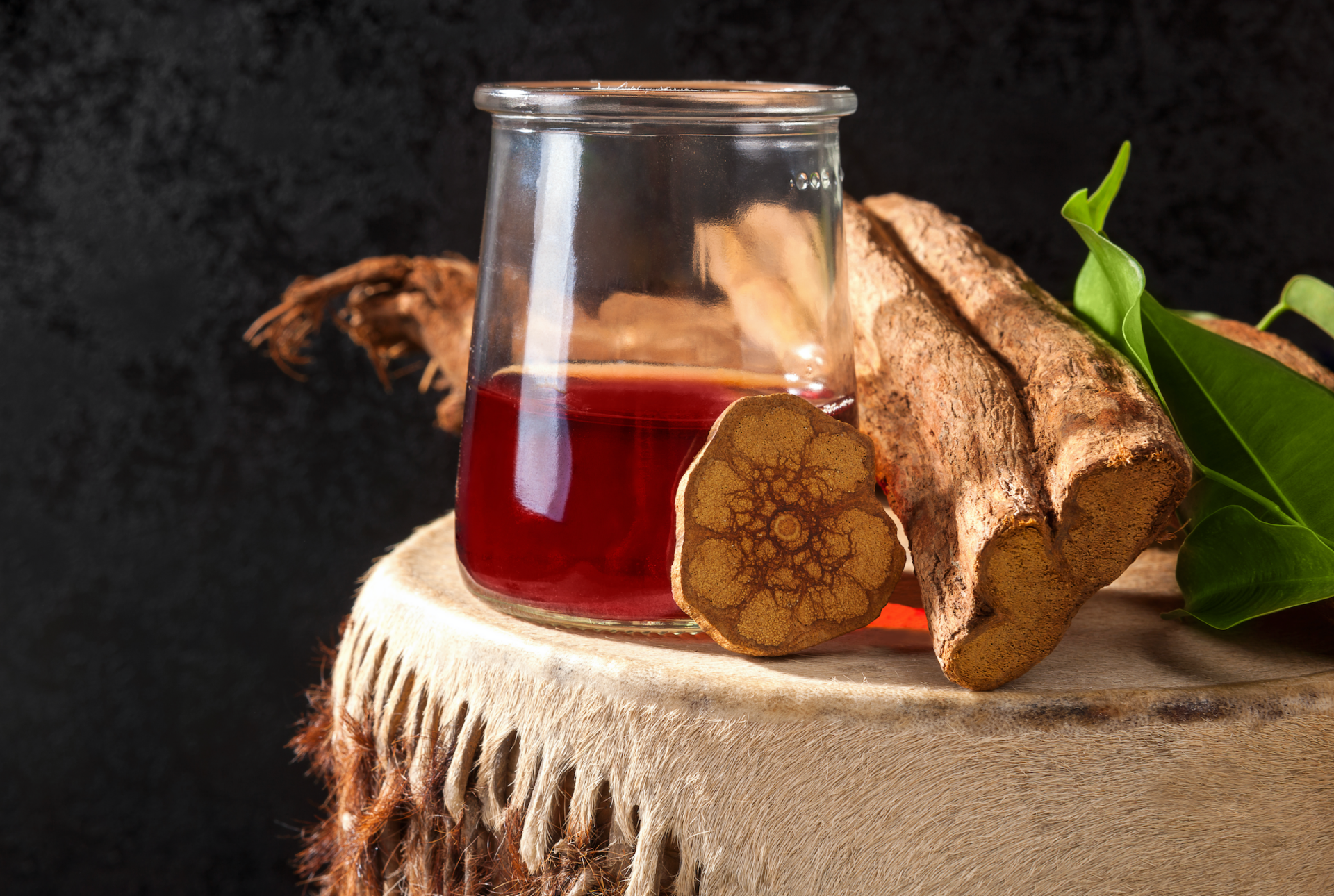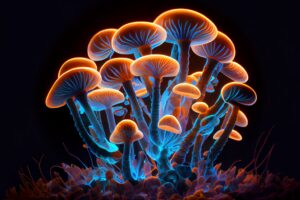"There are all kinds of ways to challenge ourselves. Some people do it by climbing a mountain or scuba diving. The most profound and challenging ordeal is to drink Ayahuasca. It is in a way the ultimate adventure." – Graham Hancock, British writer, and journalist
Silicon Valley Execs to Veterans with PTSD
Jim recently became the Founder of a psychedelics company within the nascent industry. When asked why he left the traditional tech world for psychedelics, he says,
"I started taking Ayahuasca in ceremonial settings a few years ago. The profound shift in my mental health and perspective made me wonder what I was doing with my life and career. At that point, I decided to dedicate myself to finding a way to allow everyone to have this mind-expanding experience, but in a legal framework, with effective drugs available in a prescription format. My belief is that we can effect big changes in mental health with smaller doses of these drugs. Today, I still consume Ayahuasca a couple of times a year, to "reset" my normal way of thinking."
Over the past decade, people from all walks of life have begun the conversation about Ayahuasca. From corporate executives taking long boat rides into the Peruvian jungle for a vision quest to veterans seeking relief from PTSD, people are consuming Ayahuasca for a variety of reasons. Whether you seek to meet the "ultimate reality" or beat back anxiety and depression, Ayahuasca may deserve a closer look.
What Is Ayahuasca?
Known as the "vine of the soul," Ayahuasca has been used for therapeutic and spiritual purposes reportedly for centuries in South America before migrating more recently to North America. A tea or a thick sludgy brew, it is made from the leaves of the Psychotria Viridis shrub (or Diploptrerys Cabrerana) and the stalks of the Banisteriopsis Caapi vine. The consumption of Ayahuasca in folklore is that of an ancient tradition with the indigenous people of Peru, Guyana, Bolivia, Brazil, Columbia, and Ecuador, although there is no historical evidence to prove this.
Ayahuasca is most often consumed in a ceremonial setting where a shaman, curandero, or "guide" leads a group. The guide, often creates the Ayahuasca brew itself, which may vary in consistency, potency and plant matter. The bitter "tea" is a highly concentrated extract of the medicinal compounds which may be made over the course of several days and is, as a final step, strained to remove any impurities. Interestingly, similar to cannabis, there are different classifications of B. Caapi, with upwards of 20 different strains. According to the psychedelics site Third Wave, the strains are identified by the "type of soil they come from, the time of harvest, their spiritual value, and the types of visions they can incur, or healing they can facilitate."
Ayahuasca’s main psychoactive component is DMT, or N, N-dimethyltryptamine, a naturally occurring chemical that many believe is produced in small amounts within the human brain. In larger amounts however it is a potent hallucinogenic that dramatically alters perception and consciousness when consumed.
Progressive institutions worldwide are studying Ayahuasca to discover how it may help people struggling with mental health disorders. Ayahuasca is known to activate repressed memories which helps some people move past traumatic events. This may be why research centers including the Beckley Foundation, MAPS and the Center for Psychedelic and Consciousness Research at Johns Hopkins, are studying the effects of Ayahuasca on brain function as well as intractable depression, anxiety, PTSD, and addiction.
What Are Ayahuasca’s Effects?
The main ingredients of Ayahuasca brew, Banisteriopsis Caapi and Psychotria Viridis, both have psychedelic properties. Ayahuasca as a liquid, is metabolized by the liver and absorbed through the stomach lining. Your stomach naturally contains enzymes that quickly breakdown DMT within your liver and gastrointestinal tract.
For this reason, Ayahuasca must contain monoamine oxidase inhibitors, or MAOIs, which stop the breakdown of DMT gastrointestinal tract and stomach. The MAOIs within the vine Banisteriopsis Caapialso also happen to bring about the ‘purge’ (or vomiting) often associated with drinking Ayahuasca.
Ayahuasca is a thick and bitter brew to drink and between 30 to 60 minutes after drinking may cause some of the following physical symptoms:
- Bodily temperature fluctuation
- Rapid heartbeat
- Shivering and tingling
- Intense nausea that may come and go
- A feeling of irritability and discomfort
- Higher diastolic blood pressure
- Crying
- Diarrhea
- Vomiting
Although the physical manifestations may seem unpleasant, they most likely will subside. As you descend into your trip, fractal hallucinations are very common, as are full-blown visions and lucid dreaming. Some people report seeing spirits, other worlds and reflect on the sense of being part of something bigger than the self. For many, drinking ayahuasca can create complete ego dissolution for the duration of the trip – anywhere from 4 to 6 hours.
Initial observational studies indicate that people who consume the Amazonian brew may experience lasting positive impacts on their psychological health, from building more meaning and purpose to having a deeper connection with a "higher power." However, the illicit status of Ayahuasca, also known as DMT, proves challenging for scientific study.
When taken in controlled doses, it has been shown that DMT significantly alters electrical brain activity, creating changes that are different than the effects associated with other psychedelics, including LSD and psilocybin. A study published in 2019 was the first to show how DMT impacts waking brain waves, causing subjects to experience an immersive "waking-dream". Those who take DMT, and more specifically, Ayahuasca, often report intense hallucinations and emotional experiences, leading to significant breakthroughs. As scientists describe this experience, "it’s like dreaming, but with your eyes open."
Ayahuasca has been shown to modulate brain activity; neurotransmission, impacting key neurotransmitters; gene expression, target symptoms of PTSD, depression, etc.. It may even impact epigenetic regulation, targeting conditions in which cellular memory is dysregulated, including neurodegenerative and autoimmune conditions, and addiction. Initial studies indicate that Ayahuasca may also support brain health, by protecting brain cells while stimulating cell growth.
Ayahuasca and Depression
A 2018 study by Psychopharmacology illustrates how Ayahuasca alters thinking style, impacting areas such as judgment, reactivity, and ego dissolutiom. This suggests that consumers may experience greater acceptance of their thoughts and feelings upon taking Ayahuasca, specifically benefiting those with persistent negative, unhealthy thoughts and depression. The study states,
"Attendants in the Netherlands and Colombia were assessed before, the day after, and 4 weeks following the (Ayahuasca) ritual. Relative to baseline, ratings of depression and stress significantly decreased after the Ayahuasca ceremony and these changes persisted for 4 weeks. Likewise, convergent thinking improved the post-Ayahuasca ceremony up until the 4 weeks follow-up."
In the first controlled trial by Cambridge University Press, the significant antidepressant effects of Ayahuasca in patients. The study gathered "new evidence supporting the safety and therapeutic value of Ayahuasca, dosed within an appropriate setting, to help treat depression."
Ayahuasca and PTSD
Ayahuasca is now being studied as a potential treatment for PTSD. It is of particular interest among veterans who seek peace-of-mind, as they aim to channel feelings of anger while overcoming debilitating trauma. Ayahuasca may help PTSD sufferers due to its "modulation of brain activity, neurotransmission, and neurogenesis, which are consistent with the reported effects of Ayahuasca on the retrieval of traumatic memories."
Ayahuasca and Addiction
Ayahuasca has been shown to exert significant anti-addictive properties based on how it influences dopamine and serotonin levels while interfering with synaptic plasticity – which contributes to learning and memory. Psychological insights also increase, helping individuals process repressed trauma while enhancing their decision-making skills.
Renowned addiction expert Gabor Mate states the following on Ayahuasca and addiction,
"No matter what a person is addicted to—whether it’s eating, shopping, sex, drugs—each addicted person harbors a deep pain, which they may or may not be in touch with. The plant removes the self-created barriers to get in touch with the source of that pain, so you realize what you’ve been running from all of your life.”
Are There Any Risks Associated with Ayahuasca?
For the most part, when taken in a responsible, controlled environment, Ayahuasca is safe. As stated by York University, this substance is most dangerous when individuals have a pre-existing illness, such as a heart condition or bipolar disorder. In the few reported death cases, pre-existing conditions are believed to have played a role, or the possibility of drug interactions. Ayahuasca is not intended to be taken with recreational drugs, antidepressants (SSRIs), nicotine, or caffeine. There has never been a death during a clinical study.
Where Can I Legally Seek Treatment?
Ayahuasca is currently illegal to consume, sell, possess, import, or distribute in the United States. However, there are special judicially granted exceptions for select churches. There are similar exceptions being made in other Western countries, including Canada.
Pre-COVID, retreat centers in South America were increasingly popular, especially in Peru. For instance, Iquitos, Peru has more Ayahausca retreat centers than anywhere in the world. The key to finding the right retreat center for you is to really do your homework. Although we can not recommend a specific retreat center that meets your needs, here is a list of Ayahuasca retreat centers to assist your efforts.





